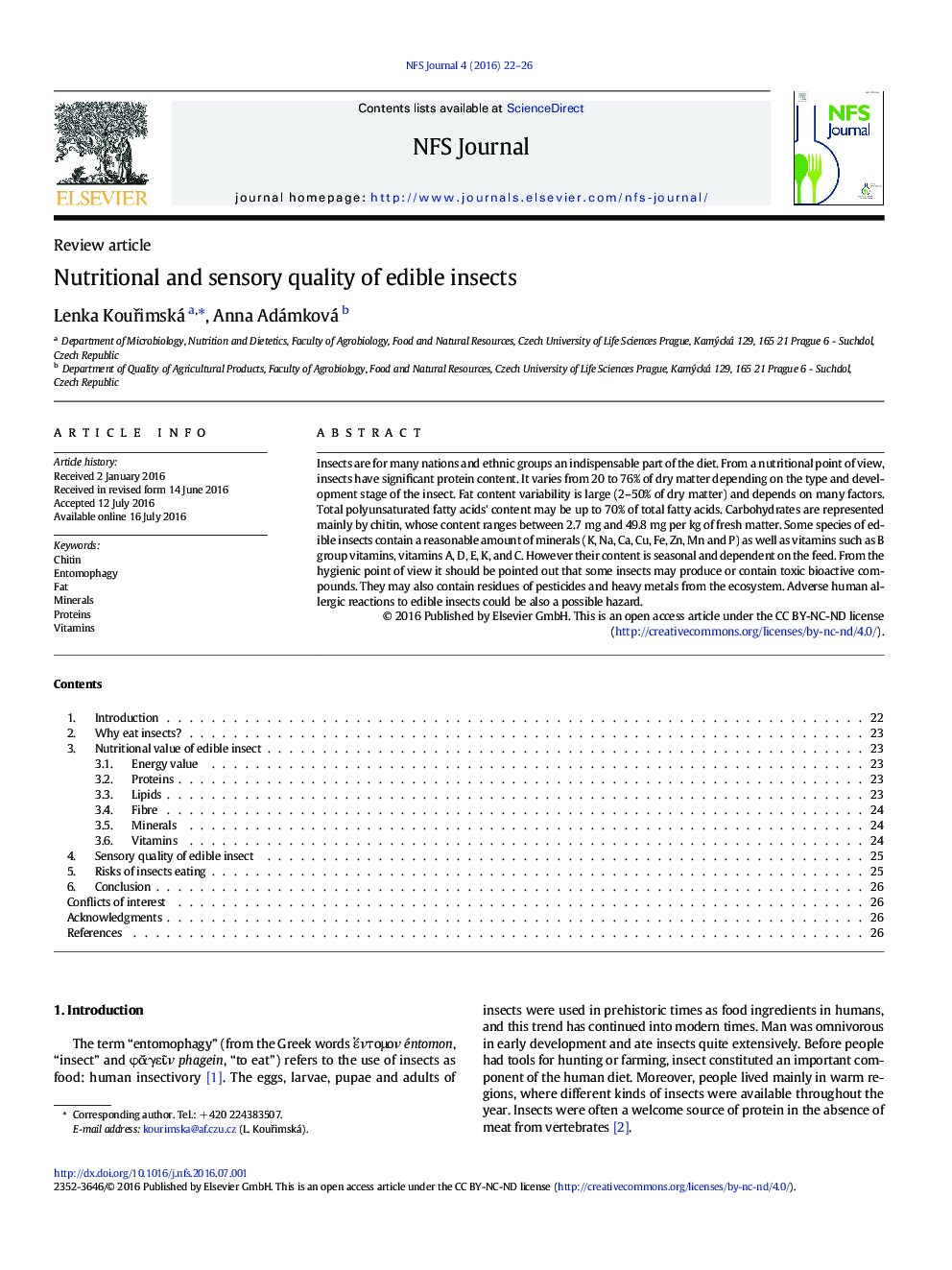| Article ID | Journal | Published Year | Pages | File Type |
|---|---|---|---|---|
| 1085605 | NFS Journal | 2016 | 5 Pages |
Insects are for many nations and ethnic groups an indispensable part of the diet. From a nutritional point of view, insects have significant protein content. It varies from 20 to 76% of dry matter depending on the type and development stage of the insect. Fat content variability is large (2–50% of dry matter) and depends on many factors. Total polyunsaturated fatty acids' content may be up to 70% of total fatty acids. Carbohydrates are represented mainly by chitin, whose content ranges between 2.7 mg and 49.8 mg per kg of fresh matter. Some species of edible insects contain a reasonable amount of minerals (K, Na, Ca, Cu, Fe, Zn, Mn and P) as well as vitamins such as B group vitamins, vitamins A, D, E, K, and C. However their content is seasonal and dependent on the feed. From the hygienic point of view it should be pointed out that some insects may produce or contain toxic bioactive compounds. They may also contain residues of pesticides and heavy metals from the ecosystem. Adverse human allergic reactions to edible insects could be also a possible hazard.
